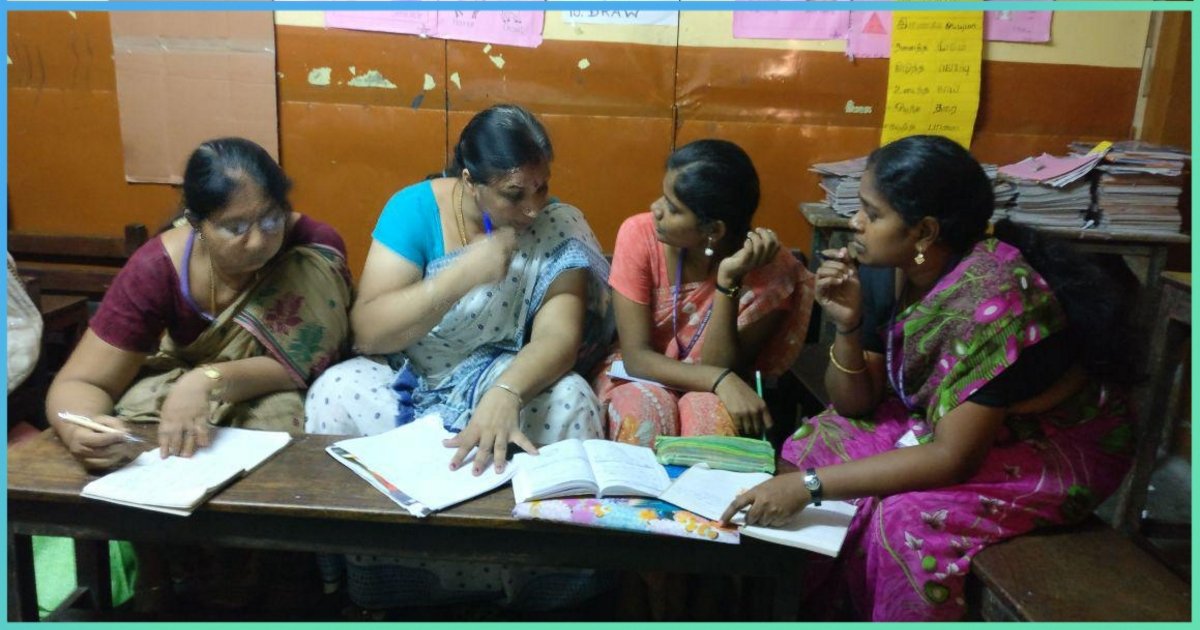
This Is How Teachers From A Low Income School Are Addressing Gender Discrimination In Their School
28 May 2018 4:53 AM GMT
It was a brisk and sunny Friday morning. I was on the playground. It was filled with the sounds of blowing whistles, enthusiastic students and cheering parents. It was the sports day of our school; the ambience got more exuberant with the start of a running race for Class 6 students. As the class teacher, I was a bit tensed. The students were on their marks to get, set and go!
The whistle was blown and the race started. Just after a few leaps, Megha, one of the active girls in my class, fell on the ground stuck by her skirt. Her dress lifted, and she had an embarrassing situation. A group of boys standing on the other side giggled loud and teased seeing her fall. She was wounded, and as I took her for first aid, she had a long face and cried saying the boys of her class laughed at her. She was more hurt due to the embarrassment she faced than for the wound. It had been almost three months since this incident happened, but it still strikes my mind whenever I see Megha.

During ‘Karka Kasadara’, an event conducted for teachers by Vidhya Vidhai, teacher groups were formed, and we were asked to think of solutions to the important problem the school might be facing and try to implement the same. The immediate problem that came to my mind was Megha’s problem. When I shared this, it caught our group’s attention. We were four of us sharing our perspectives and opinions on this. The discussion started with uniform but turned towards different aspects of gender discrimination.

Is the uniform not so comfortable for girls? Why is there always a gap between the boys and the girls in the school? Why don’t they study or play together? Why can’t they be friends with each other? Why do they sit separately in classrooms?
All of us had noticed that this behaviour is prevalent in almost all the classes. To understand this, we had some casual discussions with children from classes 1 to 5. Many of the primary school boys said girls cannot play like them and thus cannot be their friends! Some girls mentioned they are hesitant to play because of their uniform. A boy mentioned his mom advised not to sit beside girls wearing a skirt, which was strange and shocking.

In a discussion with students from Classes 6th to 12th, the girls mentioned that the boys are always naughty and teasing which they don’t like. Boys said teachers always support girls and they don’t like it. One of the common concern was that the teachers restrict boys and girls to be friends with each other.
Our group discussed this with other teachers as well. It made them realise that gender discrimination prevails everywhere like in textbooks, classrooms, etc. The teachers follow practices like grouping students for activities based on gender, restrictions to mingle with each other, supporting or opposing based on the gender, not knowing that these lead to gender discrimination in the school. This could be one of the key reasons which reflect in their behaviour and relationship between them.
We wanted to spread awareness about this to all the teachers. We presented this report to the management and discussed some solutions to rectify the problem. Our first step was to conduct an eye-opening session for teachers and thus approached an organization called ‘Aware’. They held a two-day session which gave teachers a better clarity on sex and gender. Gender sensitivity, in terms of a school context, was discussed. After the session, our first success was when we watched students sitting together in classrooms. Now our focus is on designing a comfortable uniform for girls!
This is one of the milestones Vidhya Vidhai has achieved since its establishment in May 2017. Not just with students, the organisation is working on complete transformation involving all the stakeholders of the school. The activities of the team range from children’s parliament, student workshops, pedagogical training for teachers. The training highlights even minute details like the importance of teachers to follow pre-class preparation. The team feels working with management and teachers need intricate handling thus not to hurt their sentiments on conventional practices.
To know more visit: Vidhya Vidhai and http://www.facebook.com/VVS4E/
With #MySocialResponsibility, we aim to bring you more inspiring stories of individuals and organisations across the globe. If you also know about any changemakers, share their story at [email protected] and we'll spread the word.
 All section
All section














